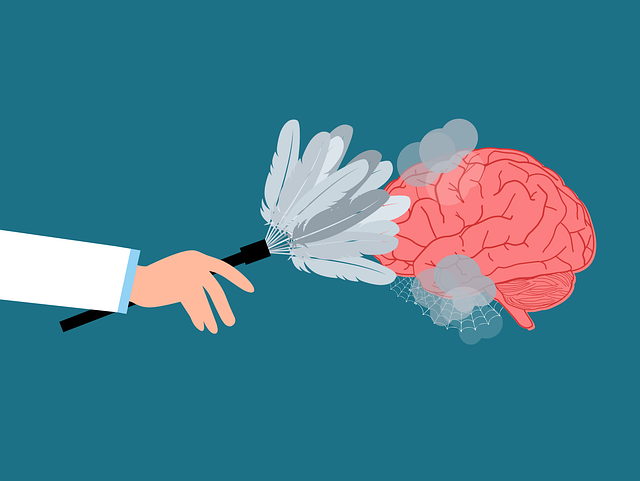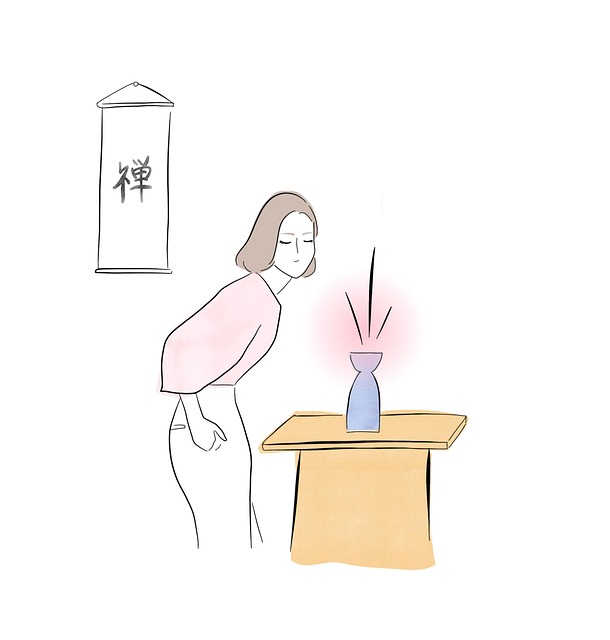Aurora Children Therapy prioritizes proactive risk management in mental health services, leveraging holistic assessments, cultural sensitivity, and evidence-based interventions like mindfulness and emotional intelligence strategies. Their comprehensive approach includes policy development, staff training, regular reviews, and access to resources like Crisis Intervention Guidance. By focusing on ethical standards, digital security, and therapist-client relationship building, Aurora ensures a safe environment for both clients and professionals, fostering resilience and positive outcomes.
“At Aurora Children’s Therapy, risk management planning is an integral part of ensuring a safe and nurturing environment for both clients and professionals. This comprehensive guide explores the critical aspects of mental health practice, focusing on identifying risks within our unique setting. From understanding the nuances of risk in child therapy to developing adaptive protocols, we navigate potential hazards and vulnerable populations effectively. Through continuous evaluation and training, Aurora Children’s Therapy remains committed to mitigating risks, fostering trust, and delivering exceptional care.”
- Understanding Risk in Mental Health Practice at Aurora Children's Therapy
- Identifying Potential Hazards and Vulnerable Populations
- Developing a Comprehensive Risk Management Plan
- Implementing Protocols for Safe Client Interaction and Data Handling
- Continuous Evaluation, Training, and Adaptation for Effective Risk Mitigation
Understanding Risk in Mental Health Practice at Aurora Children's Therapy

At Aurora Children’s Therapy, recognizing and understanding risk is a cornerstone of our mental health practice. We acknowledge that working with young minds comes with its unique challenges and potential hazards. Our team approaches each client’s well-being holistically, considering not just their current state but also the possibilities for future growth and resilience. This involves assessing various risks, including emotional vulnerability, family dynamics, and cultural influences, which can impact a child’s mental health journey.
Through our comprehensive risk management planning, we integrate strategies such as mindfulness meditation and emotional intelligence to foster a safe and supportive environment. Additionally, we prioritize cultural sensitivity in mental healthcare practice, ensuring that our interventions are tailored to each client’s background and needs. This multifaceted approach empowers our professionals to navigate complex situations effectively while promoting positive outcomes for the children we serve at Aurora Children’s Therapy.
Identifying Potential Hazards and Vulnerable Populations

In the realm of mental health services, identifying potential hazards is a cornerstone of comprehensive risk management planning. Aurora Children Therapy, for instance, must be vigilant in recognizing and mitigating risks specific to their clientele, which often includes vulnerable populations such as children and adolescents dealing with trauma, anxiety, or behavioral issues. By implementing robust systems, professionals can anticipate and address challenges arising from complex family dynamics, cultural sensitivities, and the inherent unpredictability of mental health crises.
Mind Over Matter Principles and Crisis Intervention Guidance play pivotal roles in this process. Mental Health Awareness training equips therapists with the tools to identify early warning signs of escalating conditions, enabling prompt interventions. Through regular assessments, case reviews, and staff discussions, Aurora Children Therapy can foster a culture where risk management is proactive rather than reactive, ensuring safety and effective care for all clients.
Developing a Comprehensive Risk Management Plan

At Aurora Children Therapy, we recognize that risk management planning is a cornerstone for maintaining a safe and supportive environment in mental health practice. A comprehensive risk management plan goes beyond basic compliance; it’s a strategic framework designed to anticipate and mitigate potential risks, ensuring both client well-being and professional resilience. This involves a multi-faceted approach, encompassing policy development, staff training, and access to resources like Social Skills Training and Crisis Intervention Guidance.
By integrating these elements, mental health professionals can create a robust system that effectively navigates challenges. Regular reviews and updates are essential to adapt to evolving circumstances, ensuring the plan remains dynamic and relevant. Such proactive measures not only safeguard clients but also empower therapists, fostering a culture of care and competence within Aurora Children Therapy.
Implementing Protocols for Safe Client Interaction and Data Handling

At Aurora Children Therapy, we understand that effective risk management planning is paramount for mental health professionals to create a safe and supportive environment for their clients. Implementing robust protocols ensures every interaction and data handling practice aligns with ethical standards and legal requirements. This involves establishing clear guidelines for confidential client communication, secure data storage, and access controls to protect sensitive information.
Professionals should prioritize training in secure digital practices, including encryption techniques and password management, to prevent unauthorized access. Additionally, integrating confidence boosting strategies into therapy sessions can empower clients to actively participate in their mental wellness journey. Encouraging clients to engage in mental wellness journaling exercises and mindfulness meditation not only supports their therapeutic goals but also strengthens the therapist-client relationship, fostering a safe space for open dialogue and vulnerability.
Continuous Evaluation, Training, and Adaptation for Effective Risk Mitigation

Mental health professionals at Aurora Children Therapy recognize that effective risk management is an ongoing process that requires continuous evaluation and adaptation to ever-changing circumstances. This dynamic approach ensures that strategies remain relevant and tailored to the unique needs of each client, fostering a safe and supportive environment for their mental wellness. Through regular internal reviews and external consultations, therapists can identify emerging risks and adjust their practices accordingly.
Training plays a pivotal role in this continuous cycle. Staying abreast of the latest research and techniques in risk management planning for mental health professionals equips therapists with valuable tools to navigate complex situations effectively. Additionally, engaging in Mindfulness Meditation and Mental Wellness Coaching Programs Development enhances professionals’ self-awareness and emotional resilience, enabling them to make informed decisions that contribute to both their own well-being and that of their clients.
Mental health professionals at Aurora Children’s Therapy recognize that managing risks is an integral part of providing safe and effective care. By understanding the unique risks within their practice, identifying vulnerable populations, and implementing robust protocols, they can create a supportive environment. Continuous evaluation, training, and adaptation are key to staying ahead of emerging challenges, ensuring the well-being of both clients and practitioners. Embracing these strategies enables Aurora Children’s Therapy to deliver high-quality services while mitigating potential hazards, ultimately fostering healthier outcomes for all.














